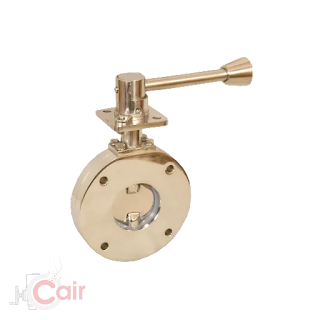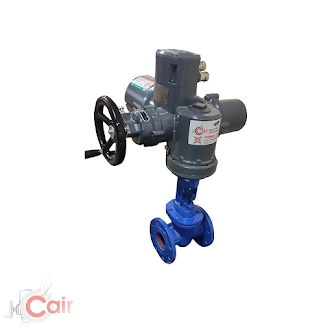Why UPVC Valves Are The Best Option For Water Treatment Plants
What are UPVC Valves?
UPVC valves are made from unplasticized polyvinyl chloride (UPVC), a thermoplastic material widely used in various industrial applications. These valves are designed to regulate the flow of fluids such as water, air, or chemicals in pipelines and are highly durable, corrosion-resistant, and cost-effective.
UPVC valves are available in different types, including ball, butterfly, check, diaphragm, and globe valves. Each type has specific features and functions and is designed to operate under specific conditions.
Ball valves, for instance, are commonly used in water treatment, chemical processing, and oil and gas industries, as they offer precise control and shut-off capabilities. On the other hand, Butterfly valves are ideal for regulating fluid flow in large pipelines, while check valves are used to prevent backflow in sewage and water treatment plants.
UPVC valves are preferred over other materials, such as metal or brass, due to their excellent chemical and corrosion resistance, low cost, and easy installation. They are also lightweight, making them easy to handle and transport.
Overall, UPVC valves are a reliable and cost-effective solution for various industrial applications that require precise flow control and shut-off capabilities.
Why are UPVC Valves the Best Option for Water Treatment Plants?
UPVC valves are considered the best option for water treatment plants due to their exceptional chemical and corrosion resistance, durability, and cost-effectiveness. These valves are specifically designed to regulate the flow of fluids, making them an ideal choice for managing water flow in a treatment plant.
One of the main advantages of UPVC valves is their resistance to chemicals and corrosion, which is crucial for water treatment plants. These plants handle a range of chemicals and substances, including chlorine, acids, and alkalis, which can erode and damage metal valves. UPVC valves, on the other hand, are highly resistant to these chemicals, ensuring they can withstand the harsh conditions in a water treatment plant.
Moreover, UPVC valves are durable and long-lasting, requiring minimal maintenance and having a longer lifespan than other valve materials. This feature is particularly important for water treatment plants that operate 24/7, where any downtime can cause significant disruptions and delays.
Another advantage of UPVC valves is their affordability, making them a cost-effective solution for water treatment plants. Compared to metal valves, UPVC valves are significantly cheaper, allowing water treatment plants to save on costs without compromising quality or performance.
In conclusion, UPVC valves are the best option for water treatment plants due to their exceptional chemical and corrosion resistance, durability, and cost-effectiveness. These valves ensure a reliable and long-lasting flow control system that can withstand the harsh conditions of a water treatment plant, providing a reliable and cost-effective solution for managing water flow.
UPVC Valves are Corrosion Resistant
UPVC valves are highly valued for their excellent corrosion resistance, which makes them a popular choice for various industrial applications. This material is a form of rigid PVC containing no plasticizers, making it highly resistant to chemical corrosion and degradation. UPVC valves can withstand a wide range of chemicals, including acids, alkalis, and salts, without experiencing any corrosion or damage.
The corrosion-resistant properties of UPVC valves for water treatment plant make them an ideal choice for applications that involve the handling of corrosive substances, such as chemical processing, water treatment, and oil and gas industries. These industries require valves that can withstand exposure to harsh chemicals without experiencing any corrosion or degradation that could result in leaks, failures, or shutdowns.
Another advantage of UPVC valves is that they require very little maintenance, thanks to their corrosion-resistant properties. Unlike metal valves, which are prone to corrosion and require regular maintenance and replacement, UPVC valves can last long without needing maintenance. This results in business cost savings, as they don't need to spend time and money on maintenance and replacement.
Finally, UPVC valves are also resistant to UV radiation and weathering, which makes them an ideal choice for outdoor applications. They can withstand exposure to sunlight and harsh weather conditions without losing their mechanical properties or experiencing any degradation.
In conclusion, UPVC valves are highly valued for their excellent corrosion resistance, which makes them a popular choice for various industrial applications. These valves can withstand exposure to harsh chemicals, require very little maintenance, and are resistant to UV radiation and weathering, providing a reliable and long-lasting solution for flow control in various industries.
UPVC Valves are Strong and Durable
UPVC valves are known for their exceptional strength and durability, making them a reliable choice for various industrial applications. These valves are made from rigid PVC, a tough, thermoplastic material resistant to impacts, abrasion, and wear.
One of the key advantages of UPVC valves is their high mechanical strength, which makes them capable of withstanding high pressure and temperature without experiencing any deformation or failure. This makes them ideal for applications that require precise flow control and shut-off capabilities, such as in the chemical processing, oil and gas, and water treatment industries.
Moreover, UPVC valves are highly durable, which means they have a long lifespan and require minimal maintenance. Unlike metal valves, which are prone to corrosion and wear, UPVC valves can last for years without experiencing any degradation or loss of performance. This makes them a cost-effective solution for businesses that require reliable and long-lasting flow control systems.
Another advantage of UPVC valves is their resistance to abrasion and wear. This is particularly important in applications that handle abrasive materials, such as sand or gravel, which can cause significant wear and tear on metal valves. UPVC valves, on the other hand, can withstand this type of wear without experiencing any damage or failure.
Finally, UPVC valves are lightweight, which makes them easy to handle and transport. This is an important feature for businesses that require large volumes of valves or need to move them frequently.
In conclusion, UPVC valves are a strong and durable solution for flow control in various industrial applications. They have high mechanical strength, are highly resistant to abrasion and wear, and require minimal maintenance. Their lightweight nature makes them easy to handle and transport, providing a cost-effective and reliable solution for businesses that require precise flow control systems.
UPVC Valves are Cost Effective
UPVC valves are a cost-effective solution for flow control in various industrial applications. They are significantly cheaper than metal valves, providing high-performance levels, durability, and chemical resistance.
One of the key advantages of UPVC valves is their low cost. Compared to metal valves, UPVC valves are significantly cheaper to manufacture, purchase, and install. This makes them an ideal choice for businesses that require many valves or need to replace them frequently.
Moreover, UPVC valves require minimal maintenance, which reduces their overall lifecycle costs. Unlike metal valves, prone to corrosion and wear, UPVC valves can last for years without needing maintenance or replacement. This results in business cost savings, as they don't need to spend time and money on repairs or replacements.
Another advantage of UPVC valves is their lightweight nature, which makes them easy to handle and transport. This reduces transportation costs and makes installation easier, further contributing to their cost-effectiveness.
UPVC valves are also resistant to chemical corrosion, which reduces the need for expensive coatings or treatments. This is particularly important in applications that handle corrosive substances, such as chemical processing or water treatment industries.
Finally, UPVC valves are compatible with a wide range of piping materials, which makes them a versatile choice for various industrial applications. They can be used with PVC, CPVC, and other plastic piping materials and metal piping materials.
In conclusion, UPVC valves are a cost-effective solution for flow control in various industrial applications. They are significantly cheaper than metal valves, require minimal maintenance, and resist chemical corrosion. Their lightweight nature and compatibility with various piping materials make them a versatile and cost-effective choice for businesses that require reliable and precise flow control systems.
UPVC Valves are Easy to Install
UPVC valves are known for their ease of installation, making them popular for various industrial applications. These valves are lightweight, compatible with a wide range of piping materials, and require minimal tools or equipment for installation.
One of the key advantages of UPVC valves is their lightweight nature. This makes them easy to handle and transport, reducing the need for heavy equipment or machinery during installation. Additionally, the lightweight nature of UPVC valves makes them easier to position and align during installation, saving time and effort.
Moreover, UPVC valves are compatible with a wide range of piping materials, including PVC, CPVC, and other plastic piping materials, as well as metal piping materials. This versatility means UPVC valves can be easily integrated into existing piping systems without requiring extensive modifications or additional equipment.
Another advantage of UPVC valves is their simple installation process. These valves can be installed using basic tools and equipment, such as wrenches and pipe cutters. This reduces the need for specialized skills or training, making them a popular choice for businesses requiring quick installation.
UPVC valves have various connection options, including threaded, socket, and flange connections. This means they can be easily connected to different piping systems, depending on the application's requirements.
Finally, UPVC valves require minimal maintenance, reducing the time and effort required for installation and ongoing maintenance. Unlike metal valves requiring frequent maintenance and replacement, UPVC valves can last years without needing repairs or replacement.
In conclusion, UPVC valves are easy to install and require minimal equipment or specialized skills. They are lightweight, compatible with various piping materials, and have various connection options. The simple installation process and minimal maintenance requirements make them popular for businesses requiring reliable and precise flow control systems.




Comments
Post a Comment